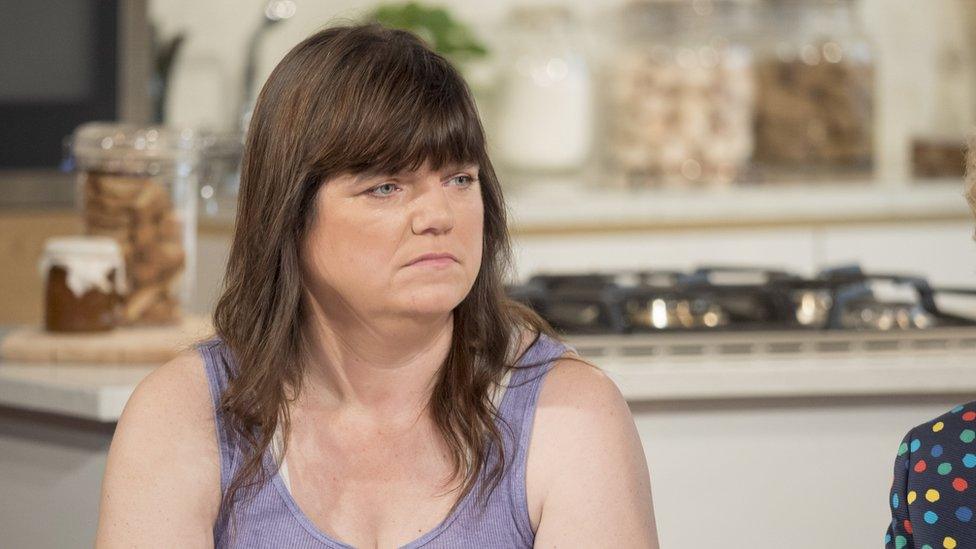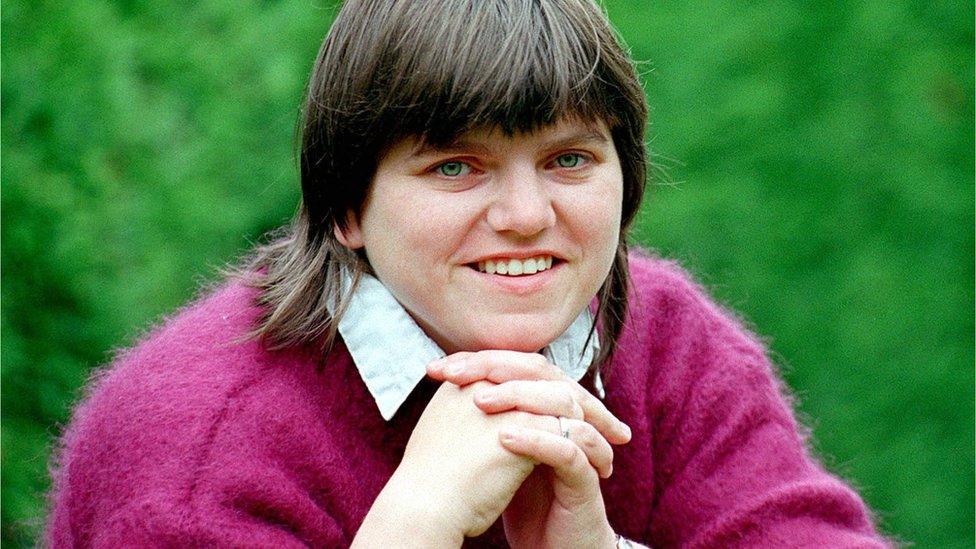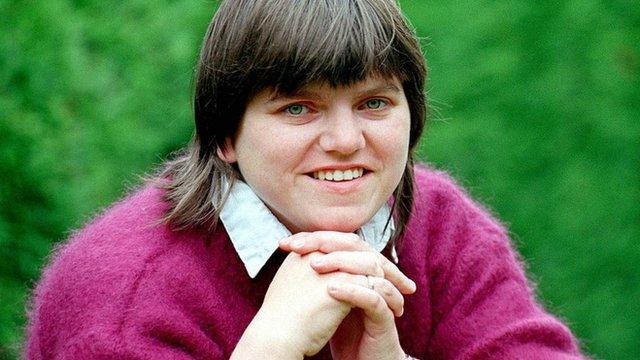Jill Saward: How Ealing vicarage case changed treatment of rape victims
- Published

In 1986 Jill Saward, who has died aged 51, was raped after a gang of burglars broke into the Ealing vicarage where she lived.
Her father, Michael - the vicar of St Mary's, Ealing - and her boyfriend were beaten with cricket bats by the men, who demanded money and jewellery.
It was a sexual attack that shocked the nation, became headline news and was subsequently labelled the "Ealing vicarage rape".
The media coverage of the case and the sentencing of the men who attacked Ms Saward - who later became Jill Drake - led to a public outcry about how rape victims were treated.
Ringleader Robert Horscroft, then 34, who did not take part in the rape, was sentenced to 14 years in jail for his part in the burglary.
Martin McCall, then 22, was given five years for rape and a further five for burglary, while Christopher Byrne, who was also 22, was given three years for his part in the sexual assault and five for the burglary.
During sentencing, Old Bailey Judge Sir John Leonard said the trauma suffered by Ms Saward was "not so very great".
'Insensitivity to suffering'
Ms Saward's case affected the way rape victims were treated and is still being felt 30 years later.
The public backlash against the media coverage and subsequent sentencing helped bring about changes to the way sexual assault cases were viewed.
In particular, there was uproar at how one of the defendants had been given a longer sentence for the burglary than the attack.
Several MPs, including Neil Kinnock, criticised the prison terms handed down - saying they were too lenient.
The then-Labour leader said during a Commons debate in 1987: "While it is necessary for judges to remain detached in the name of the law, sometimes they show an insensitivity to the suffering of victims which is difficult to comprehend."
And Margaret Thatcher, who was prime minister at the time, expressed her "deep concern" over the crime of rape following concerns about the case.
Ms Saward's case also sparked fierce criticisms about press coverage of rape cases after Ms Saward's ordeal became front page news.
While newspapers did not name Ms Saward as the victim, several of them published details which led her to be easily identifiable.
Jill Saward, who was gang raped in 1986, says her attackers got the same sentence as for aggravated burglary
The Sun newspaper printed the location of the attack and a photograph of Ms Saward with her eyes blacked out in the days following the rape.
When investigated, the publication relied on the defence that media identification of a victim was only banned after a defendant was charged, which was the case at the time.
Speaking in 1987 Ms Saward, who was an identical twin, demanded a change in the law to prevent this from happening.
According to the Guardian, she said: "Unless this is done, others may find themselves identifiable by a process of deduction from third parties known to be involved as victims of a crime as I was.
"This was very distressing both to myself and my family, and the manner in which some newspapers conveyed this information was highly insensitive and offensive."
The law was changed a year later to allow for the right to appeal against lenient sentences and to close a loophole which allowed media identification of a rape victim before a defendant was charged.
The Press Council also published guidelines on how rape cases were reported to prevent victims' anonymity being breached through jigsaw identification.
Changing attitudes
The notorious case put the laws on rape under the spotlight and led to calls by women's groups and politicians to call for changes to the way the crimes were viewed.
These included making rape within marriage a criminal offence, making oral and anal intercourse classified as rape and tougher sentencing for rapists - all of which have been achieved.
In 1990, Ms Saward broke new ground when she became the first rape victim in the UK to waive her right to anonymity.
She co-wrote a book, Rape: My Story, which explored her ordeal and she went on to become a fierce campaigner for the rights of sexual assault victims.
Her decision to speak publicly was driven by a desire to change attitudes towards victims and strengthen the support they receive.
Ms Saward launched a help group for those who had experienced sex crimes and regularly appeared in the media to highlight issues faced by victims.
Victims at 'forefront'
Her commitment to the cause also saw her become a sexual assault case worker and she subsequently provided training to police forces across the country.
Over the years, further changes have been made to the way sexual assault cases are handled - taking into account the way victims were treated.
These include a ban on allowing an alleged rapist to cross-examine victims while representing themselves in court and restrictions on what evidence can be heard about a victim's sexual behaviour.
New guidelines were published on the sentencing of sex offenders in England and Wales in 2013 which gave a greater emphasis on the impact on the victim - something Ms Saward had long campaigned for.
Speaking to the BBC, she said: "So long we've felt left out of the system or surplus to requirement, so to actually see victims' needs and what's happened to victims being put at the forefront of this is really, really good."
Ms Saward never gave up on her fight for victims' rights, and in 2015 she spoke out against calls to give those accused of sex crimes anonymity.
In 1998, she came face-to-face with a member of the gang who devastated her life, but did not rape her, and told him: "You don't need to say sorry."
But she also spoke about forgiveness and said in a BBC interview: "I believe forgiveness gives you freedom. Freedom to move on without being held back by the past."
- Published5 January 2017

- Published12 December 2013
